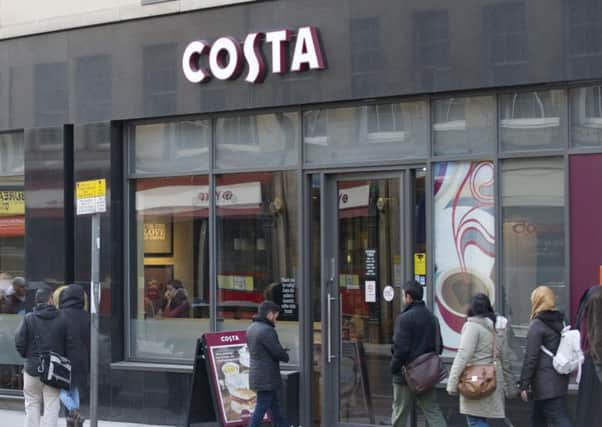Martin Flanagan: Clouds in Whitbread's coffee cup
This article contains affiliate links. We may earn a small commission on items purchased through this article, but that does not affect our editorial judgement.


Coffee shops, all but ubiquitous, just traded through the louring clouds as people refused to cut back on their little daily luxury of latte or flat white. And budget hotels came into their own as the tightened economic circumstances meant both leisure and business customers looked for cheaper options to four-star flamboyance.
Whitbread’s latest annual results suggest much of the same resilience. Its Costa coffee division’s profits are up 5 per cent, while profits at its Premier Inn and restaurants arm are up 7 per cent.
Advertisement
Hide AdAdvertisement
Hide AdThere are caveats, however, signalled by the 7 per cent slide in Whitbread’s share price yesterday. The market has decided that coffee businesses and budget hotels are vulnerable to commodity price inflation and the national living wage. Business rates are seen as aggravating those current market pressures, which largely stem from the run-up to the Brexit vote and the subsequent slump in the value of the pound.
That perceived squeeze on profit margins in the future at Costa and Premier Inn, together with Whitbread’s cautious outlook statement, did the damage to investor sentiment. In some ways the concerns look excessive. As said above, the group has made solid, even obdurate, progress in tough conditions before. It throws off a lot of capital, and is not resting on its laurels with it.
Whitbread is expanding both Costa and Premier Inns’ footprint, while consolidating its position abroad, useful for offsetting its UK dependence if our economy slows significantly. Turnover, profit and earnings per share look in decent fettle, while the company’s return on capital is an enviably strong 15 per cent-plus. Even so, UK inflation is expected to continue rising this year, average earnings growth remain subdued and sterling stay weak.
That could feed through to weakening like-for-like sales at Whitbread’s core coffee and budget hotels, and then it will have the classic dilemma of whether to see its profit margins weaken or pass the input pressures on to customers and risk them deciding to vote with their feet.
The market could punish both eventualities.